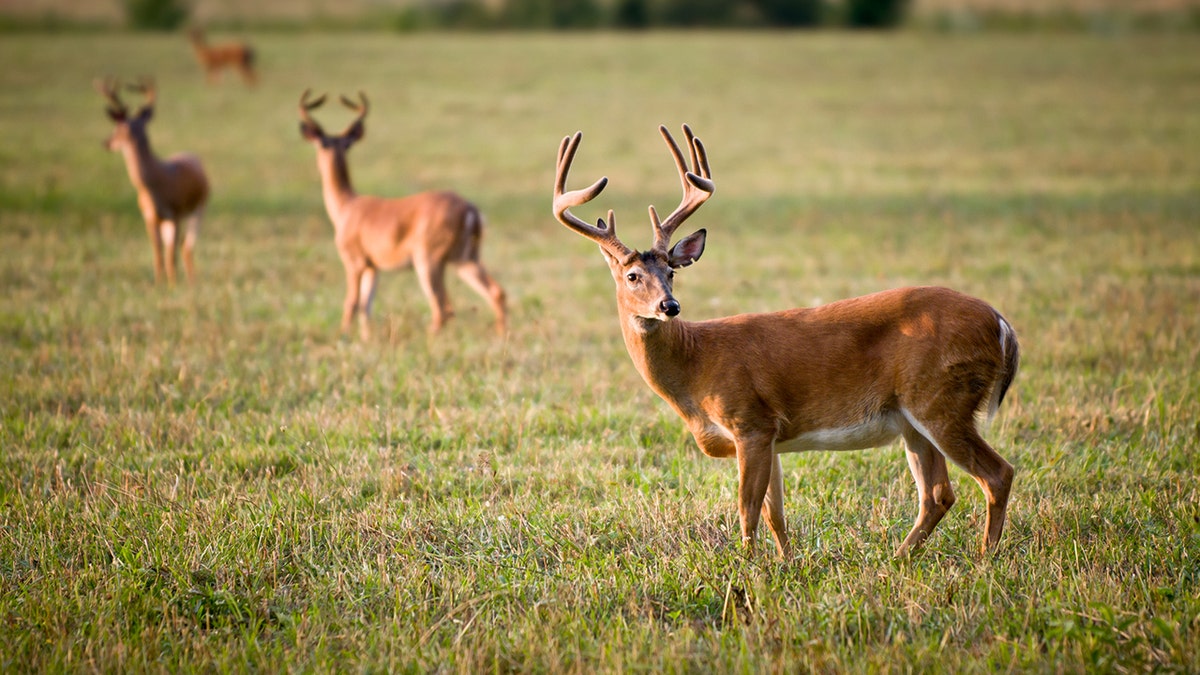
It is, far and away, the most exciting part of the deer hunting season. (iStock)
You've waited all year for this — the whitetail deer rut. You spent the spring hunting shed antlers. You spent summer glassing red-coated bucks with bulbous velvet antlers. You endured the October lull, and it's lazy, skulking deer. And now, finally, it's on. The whitetail deer rut is here. Bucks are on their feet, tearing up the woods, and crashing through the thickets in search of does.
It is, far and away, the most exciting part of the deer hunting season.
But that doesn't mean it's easy. These are still whitetails we're talking about. To help you score, we asked the country's top deer experts to share their very best deer hunting tips for the rut. Study them closely, and don't skip even one. After all, you've waited all year for this.
DOWN (UNDER) HOME: A HUNTING ADVENTURE IN NEW ZEALAND
1. Find Pay Dirt
The absolute best time to hunt buck scrapes is during a five-day window around Halloween. Set up on the sign closest to a buck’s bed. Most hunters are behind the curve, though. By the time they find hot scrapes, the bucks are on to chasing does. So, keep tabs on scraping activity now, and jump on the sign as soon as you find it. — Tom Indrebo, Wisconsin outfitter, Bluff Country Outfitters
2. Get a Wireless Plan
I hang wireless cams on active scrapes now. As soon as I get that first daylight picture, even if it’s of a small buck, I start hunting nearby. There’s a reason that sign is heating up — usually because a big buck is hitting it. — Phillip Vanderpool, TV host, Carbon TV
3. String ’Em Up
Cut a foot-long section of soft cotton or hemp rope and attach it with a zip tie to the overhanging limb of a hot scrape within shooting distance of your stand. Then fray the end and apply some gel buck lure to the loosened fibers. Bucks will go nuts over that rope and revisit your scrape over others. — S.B.
THE 50 BEST DEER HUNTING TIPS FOR THE 2018 WHITETAIL RUT
4. Go All Out
My favorite pre-rut tactic is to get on the top of a ridge, scale a tree with a climbing stand, and pull out all the stops: I rattle, grunt, bleat, snort-wheeze, and scent-bomb the air. If I don’t pull in a buck, I move 300 yards and repeat. I do this all day, staying away from known core areas. The idea is to cash in on that one ultra-aggressive buck that’s ready to go. I’ve killed more bucks doing this than using any other tactic. — Harry Pozniak, Kentucky outfitter, River Valley Farms
5. Override the Wind
When bucks are active but still using their core areas, I set up tight to bedding areas in the morning. The key is rising thermals. One of my favorite spots is near a ridge-end bedding area where thermals rising from two draws override any prevailing wind for a couple of hours in the morning. It means I can set up on almost any wind and not worry about getting busted. —Thomas Mlsna, pro staffer, Reconyx
6. Keep a Record
Rutting activity has begun, and that means it’s time to start keeping a log. The easiest way is with a hunting app like OutdoorMetrix (outdoormetrix.com), which makes recording every sighting, trail-cam pic, and shred of sign a snap. In no time, you’ll have enough data to make more-informed decisions to help you score next week, next month, next year, and in years to come. —S.B.
THE SPIN DOCTOR: HOW TO RIG A MEGA SPINNING DECOY SPREAD
7. Steal Some Scrapes
When I find a field-edge scrape with a licking-branch tree small enough to move, I’ll cut it down and reposition it within shooting range of a food-plot stand. I drive a T-post into the ground, wire the tree to it, and scuff the dirt beneath the licking branch. Whenever possible, I’ll clump two or three of these trees together for added appeal. With natural scent already on those stolen branches, any buck that steps into that plot is going to check them out, and offer an easy shot. —Mark Drury, TV host, Drury Outdoors
For 43 more tips, as well as seven dates every deer-hunter should have in their calendar, continue reading the original article at Field & Stream.